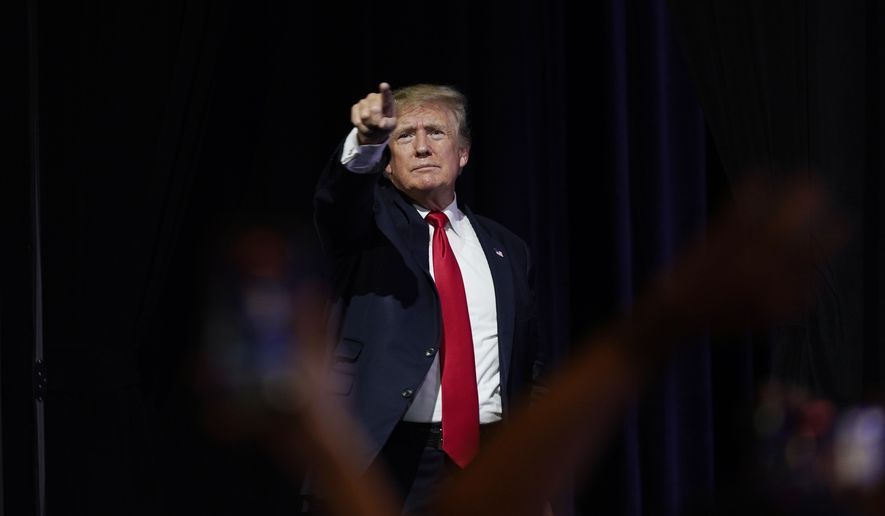Former President Donald Trump waded Monday into the bipartisan infrastructure talks, urging Senate Republicans to reject any deal until at least after the 2022 midterm elections.
Mr. Trump claimed in a statement released to the public that some Republican lawmakers were eager to cut a deal with Democrats at any cost. The former president, in particular, singled out Senate Minority Leader Mitch McConnell of Kentucky — a frequent target for criticism since Mr. Trump left the White House.
“Senate Republicans are being absolutely savaged by Democrats on the so-called ’bipartisan’ infrastructure bill,” Mr. Trump said. “Mitch McConnell and his small group of RINOs want nothing more than to get a deal done at any cost to prove that he can work with the radical left Democrats.”
Mr. Trump argued that Republicans would be better served by rejecting the deal and waiting until at least after the 2022 elections to negotiate. The GOP is expected to do well during the first midterm election of President Biden’s tenure, going off historical trends alone.
“Don’t do the infrastructure deal, wait until after we get proper election results in 2022 or otherwise, and regain a strong negotiating stance,” Mr. Trump said. “Republicans, don’t let the radical left play you for weak fools and losers!”
The comments come as a bipartisan group of senators, led by Sens. Mitt Romney, Utah Republican and Sen. Kyrsten Sinema, Arizona Democrat, work to finalize the $1.2 trillion infrastructure package.
A sticking point has been on how to finance all of the new construction projects without raising taxes. The bipartisan group of senators proposed that more than $570 billion of the overall package would come from new revenue, while the rest of the money would come from repurposed coronavirus relief funds.
Republicans have expressed reservations about the deal. Many point to the fact that Democratic leaders plan to move the infrastructure package in tandem with a $3.5 trillion social welfare bill.
The bigger legislation, which is packed with liberal priorities, is set to pass without Republican votes in a process known as budget reconciliation, which allows some spending and tax measures to avoid the 60-vote threshold and pass with 51 votes.
Some GOP lawmakers, like Mr. McConnell, already have voiced opposition to the reconciliation bill.
“The era of bipartisanship on this stuff is over,” Mr. McConnell said recently. “This is not going to be done on a bipartisan basis. [There] is going to be a hell of a fight over what this country ought to look like in the future, and it’s going to unfold here in the next few weeks.”
• Haris Alic can be reached at halic@washingtontimes.com.




Please read our comment policy before commenting.